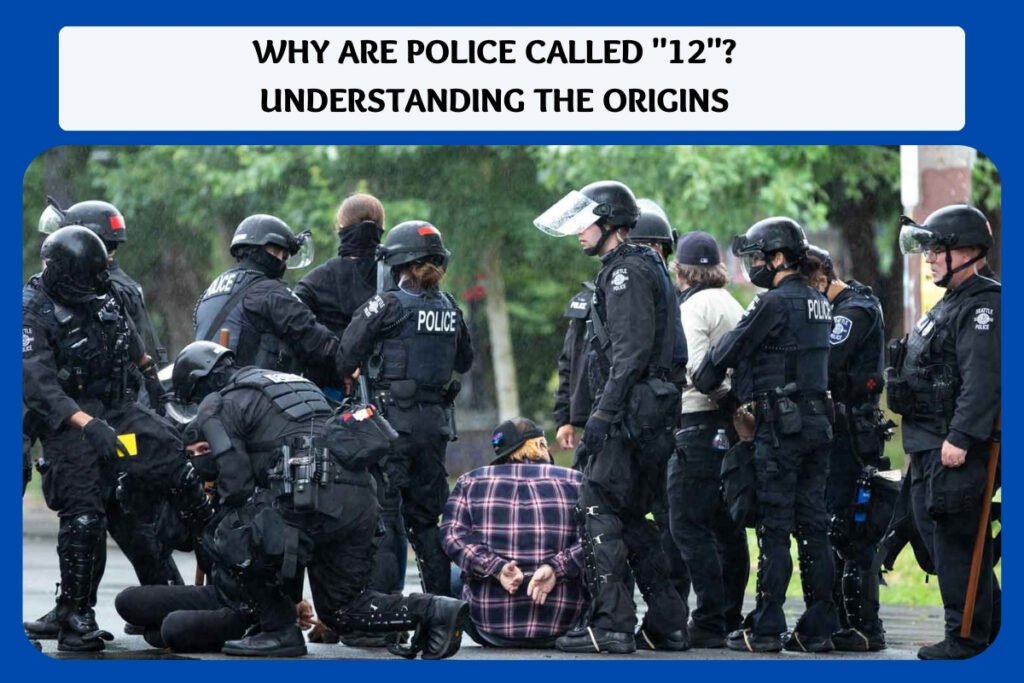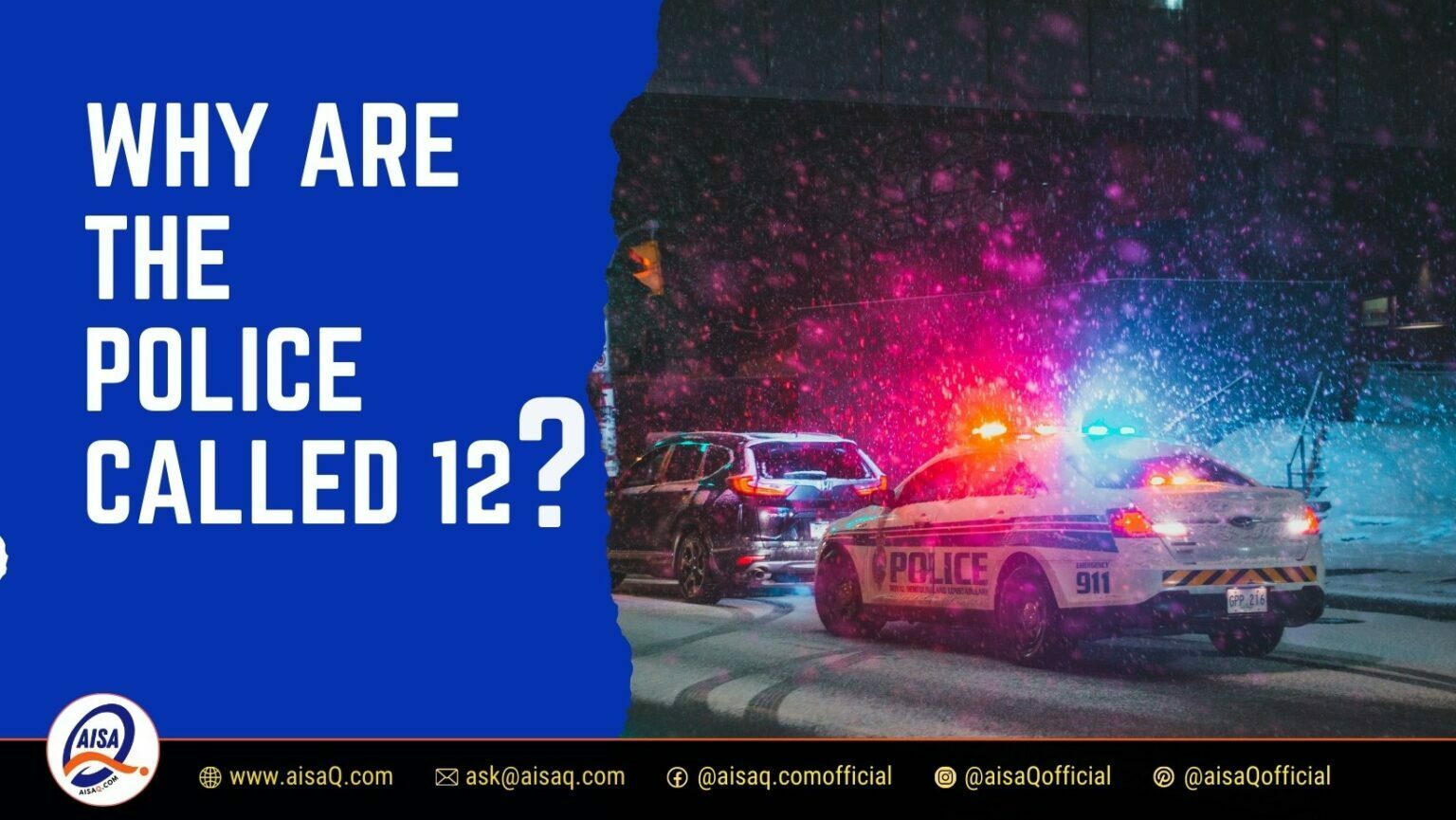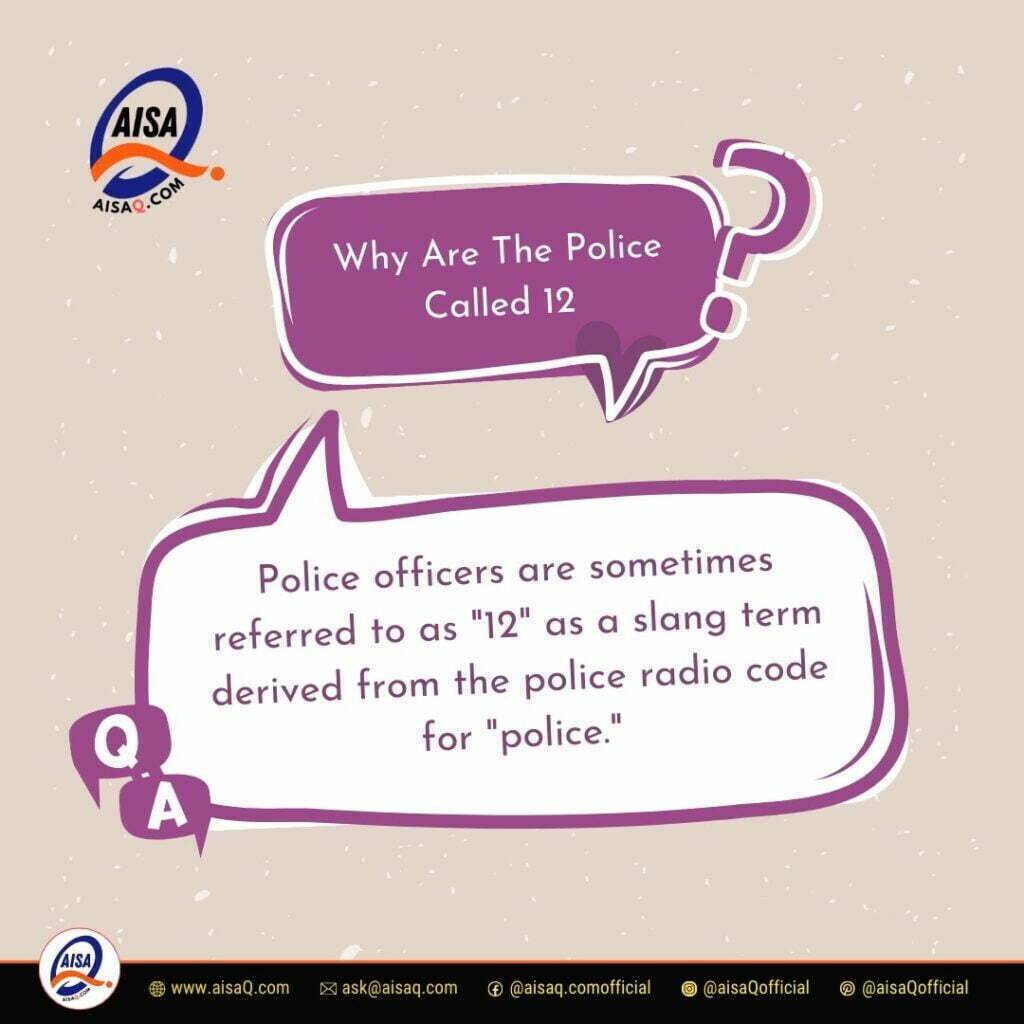Ever wondered why you hear "12" thrown around in reference to law enforcement, especially in certain circles? The seemingly simple numerical designation, "12," carries a complex history and a potent social weight, making it far more than just a random number. It's a loaded term, and understanding its origins reveals a lot about the relationship between communities and the police.
The use of "12" as slang for the police has, surprisingly, been around since the 1960s, though its exact origins are debated. The term is most commonly heard in the Southern United States and among communities with a fraught history with law enforcement. Its popularity has surged in recent years, thanks in no small part to the influence of rap music, social media, and the broader cultural landscape.
To understand the term "12," we delve into its various potential origins, explore its spread through popular culture, and analyze the social implications of its use. The objective here is not to provide a definitive answer, but to unpack the multifaceted layers that make this slang term so intriguing and, frankly, so potent.
- Dannys Story From Last Of Us To Greys Anatomy More
- Boost Writing Confidence Discover Wewillwrite Today
| Aspect | Details |
|---|---|
| Slang Term | 12 |
| Target | Police Officers |
| Primary Usage Area | Southern States of America |
| Connotation | Negative; Warning, sometimes a sign of distrust or criticism |
| Popularization Factors | Rap Music, Social Media, Pop Culture |
| Era of Origin | 1960s (speculated) |
| Common Usage Contexts | Everyday conversation, social media posts, Rap lyrics |
| Alternative Slang Terms | Pigs, Po-Po, The Man |
| Possible Explanations for Origin |
|
| Cultural Impact | Reflects and shapes community attitudes towards law enforcement |
| Linguistic Perspective | Illustrates the evolution of language and slang as a tool for communication and identity |
One of the most frequently cited theories suggests a direct link to the legal system. Specifically, it posits that "12" refers to the twelve members of a jury, the individuals who ultimately decide a defendant's fate. In this context, using "12" as a stand-in for police acts as a subtle warning: "The law" is on its way, prepare yourself, which is usually not a good thing.
Another widely circulated explanation connects "12" to the classic television show "Adam-12", a police procedural that aired from 1968 to 1975. The show, which depicted the daily lives of two Los Angeles Police Department officers, used the call sign "1-Adam-12" for their patrol car. The correlation is simple, but it is also a plausible origin, particularly given the show's widespread popularity during that time.
The impact of rap music on the popularization of "12" cannot be overstated. The genre has a long history of commenting on social issues, particularly those related to race, poverty, and interactions with law enforcement. Many artists have incorporated "12" into their lyrics, solidifying its place in the cultural lexicon and amplifying its significance. These musical expressions served as both a reflection and a catalyst, contributing to the normalization of the term.
- Discover Sandalwood A Deep Dive Into Kannada Cinema
- Explore Allthefallen Anime Manga Creative Hub Latest Updates
Social media further amplified the use of "12." Platforms like Twitter, Instagram, and TikTok provide spaces for instant communication and the rapid spread of slang. The term "12" found a natural home in online discussions, memes, and hashtags. The speed at which information travels on social media has transformed "12" into a regularly used term. When police presence is noted, "12" quickly becomes a common reaction.
The adoption and understanding of "12" is significantly influenced by regional and cultural contexts. It is most prevalent in areas with a history of strained relationships between law enforcement and the communities they serve. The term serves as a shortcut for expressing a range of emotions, from suspicion and distrust to outright hostility. Its use is a linguistic marker of a lived experience.
Furthermore, the meaning of "12" can shift slightly depending on the context. In some instances, it simply indicates the presence of the police, acting as a heads-up or a signal. In other cases, it carries a more critical edge, alluding to accusations of police brutality or heavy-handed tactics. This versatility contributes to the term's widespread adoption.
It's important to acknowledge that police codes and slang vary significantly from one jurisdiction to another. What is common in Atlanta, Georgia, might not be universally recognized elsewhere. This localized nature adds another layer of complexity to the term "12," turning it into a symbol of a specific and localized sentiment.
The historical context adds even more texture. The history of policing in the United States, particularly the struggles with racial bias and excessive force, has played a significant role in shaping the sentiment behind terms like "12". When people use the term, they are often alluding to these historical realities and the ongoing challenges they present.
The evolution of "12" illustrates broader trends in language and communication. Slang terms evolve and adapt, reflecting the ever-changing social and political environment. "12" is a case in point; it reflects the way people negotiate complicated relationships and convey their experiences with society through language.
The influence of popular culture and social media has amplified the impact of "12", however, the historical context provides depth to its understanding. The term "12" is more than a simple piece of slang. It's a symbol of the nuanced relationship between communities and law enforcement, reflecting the cultural landscape from which it emerged.
There is no single explanation for the popularity of "12". A combination of legal and social factors has played a role in its evolution. It is more than just a number; it reflects historical realities. The term is a reflection of how people experience the world around them and find creative ways to express those experiences.



Detail Author:
- Name : Dr. Aaliyah Hermiston
- Username : ondricka.pauline
- Email : randi31@gmail.com
- Birthdate : 1992-07-18
- Address : 117 Joana Road Suite 897 Courtneymouth, NM 64607-7895
- Phone : (551) 794-0563
- Company : Daniel, Kozey and Feeney
- Job : Embossing Machine Operator
- Bio : Sint numquam exercitationem beatae amet. Error harum delectus natus asperiores eveniet ea ut. Est pariatur vero officia deleniti.
Socials
facebook:
- url : https://facebook.com/lucy_dev
- username : lucy_dev
- bio : Dolorem et omnis praesentium reiciendis sapiente enim magnam.
- followers : 962
- following : 1254
instagram:
- url : https://instagram.com/turcottel
- username : turcottel
- bio : Et et maiores pariatur magnam et voluptas molestiae. In et corporis eos odit sit.
- followers : 3202
- following : 1902
twitter:
- url : https://twitter.com/turcotte2008
- username : turcotte2008
- bio : Praesentium dolores natus nihil in. Sed similique laudantium rem aut explicabo officiis. Similique quo reprehenderit sint ex.
- followers : 4293
- following : 1989
tiktok:
- url : https://tiktok.com/@turcotte1996
- username : turcotte1996
- bio : Omnis impedit aut voluptatem eos. Quae ut sit consequatur ipsa.
- followers : 5954
- following : 1995